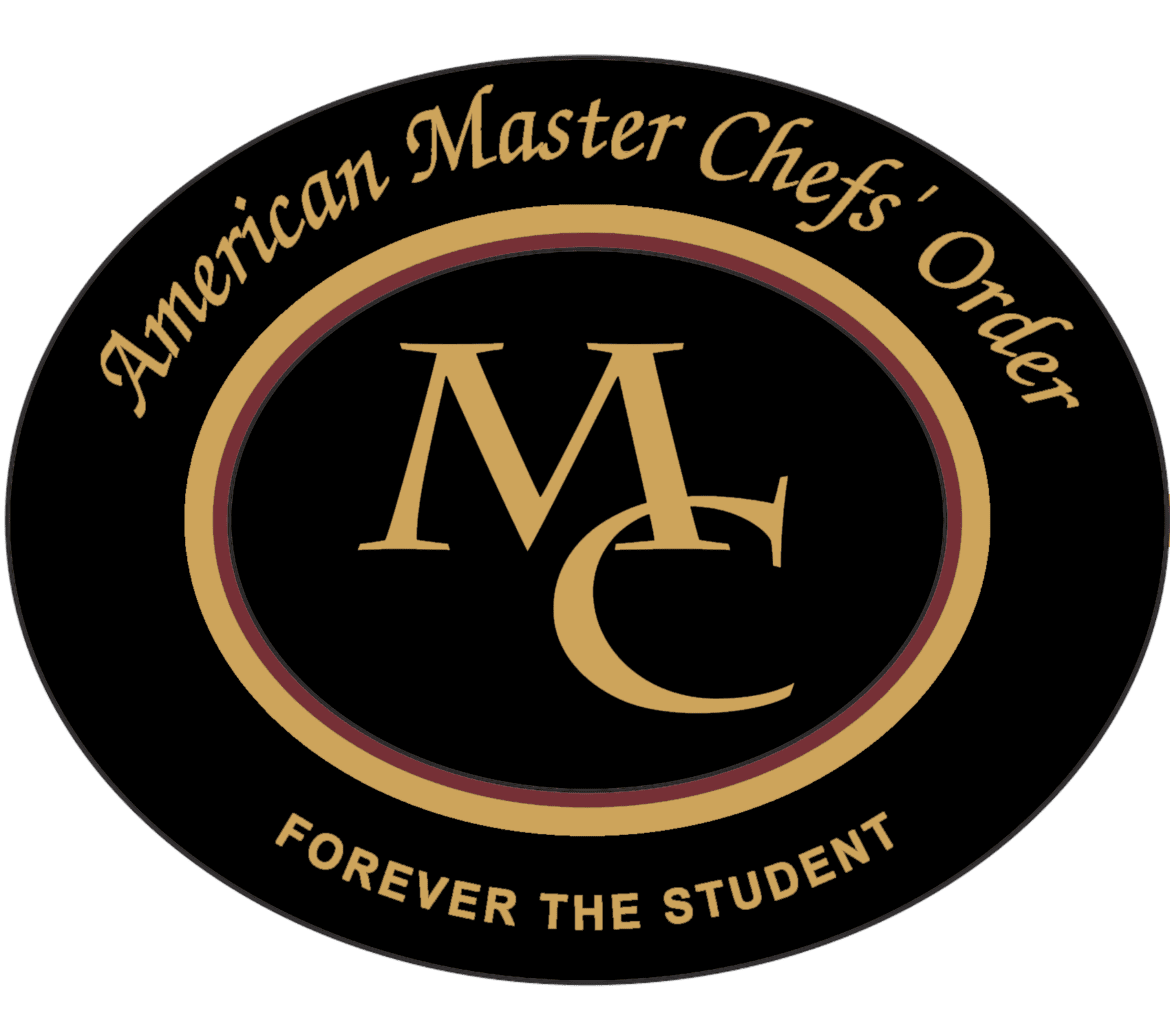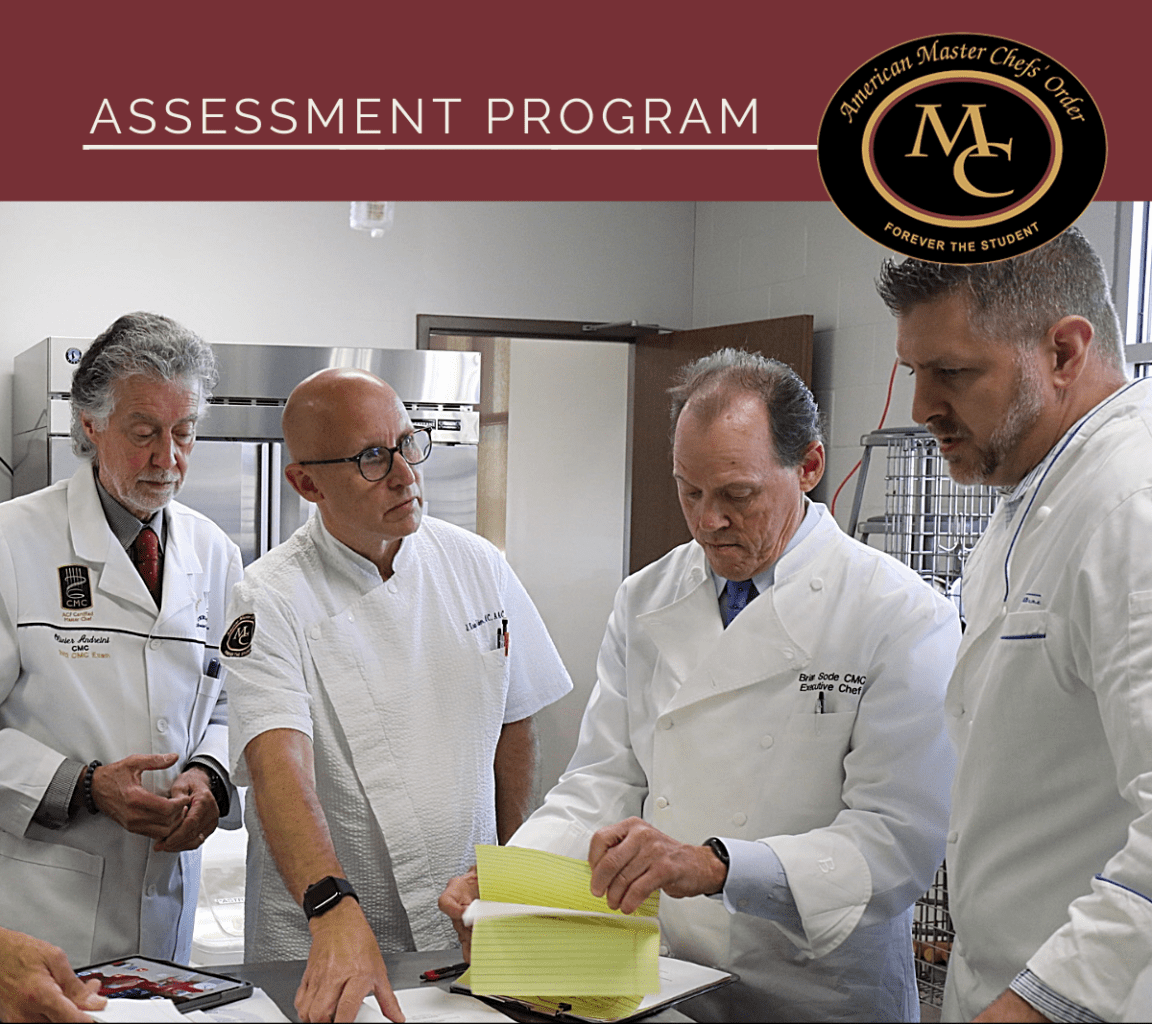Master Chef Q & A


MC Ferdinand Metz: Each day I made a priority list for myself and the apprentice in order to stay focused.
MC Dan Hugelier: Mise en place, Mise en place, Mise en place. I take as much joy from how I keep my tools as cooking. Shine your shoes, dress like an ambassador to our craft-not a baseball player. Make work lists, write things too, helps with memory.
MC James Corwell: Plan the work and work the plan. Scheduling all the tasks really helped out. Candidates Note: The sounds of a high tempo kitchen light up a chef’s brain. The movements and sounds of chopping, butchering, straining on industrial equipment is like performance on a stage. We want to see you own the toque and perform. We are there to see you own the kitchen, the commis and to taste good food.
MC Jason Hall: I had a plan for each plan. I had a very strict menu for what I would eat each day that was managed by my sous chef I brought from my club. He also had a very strict list of what he would do every day, from cleaning knives and tools, to repacking my equipment based off the next days need, to also doing walkthroughs with me of my upcoming day over and over. We read through my prep lists and timelines like actors in a movie, rehearsing times, actions and tasks till it was automatic. My menus, prep lists, requisition lists and all other items were developed along my journey to the exam until I had adjusted them to the point where I saw they were doing everything they were supposed to and I needed them to in practice. Sticking to the well-developed plan was certainly a contributing factor to success.
MC Joe Leonardi: Planning, doing schedules and sticking to them. Devotion of time. You need to plan out your weeks, months and year. Work on weaknesses, first.
MC Michael Robins: That was before computers, so we made notes and taped them everywhere, we had a plan and you constantly reviewed and modified that plan.
MC Olivier Andreini: I hung three big sheets of paper in the garage that I would see every day- what I know, what I kind of know, what needs improvement. Every day, when I would pass the sheets, I would add to the lists. After work, I would stay and work on one of the things that needed improvement until I felt confident about it. For example, if I needed to improve on consommé, once or twice a week I would make consommé until I got it right.
MC Robert Mancuso: I would train at 4:00 AM to simulate the type of exhaustion felt during the actual exam. I developed a comprehensive training plan which encompassed all aspects of the program.
MC Thomas Griffiths: I prepared paper copies and electronic copies of everything with
duplicate backup. I had my kitchen tools separated into Tupperware type containers for fabricating, paring, pick up etc… I had my own pots/ pans which I practiced with, so I knew amounts and shapes and sizes. I also tried to be very strong mentally, physically and spiritually so I would succeed. I remember having a large pile of study material on my desk and at the end of each day, discarding the work from that day. It was so helpful to see the pile slowly get smaller. And I made time to be with my family as much as I could since that’s really what’s important.
MC Tim Bucci: Being organized is extremely important for you not to become overwhelmed. First you need to set a plan, 5 years out, 3 years, 1 year, 3 months and so on. Once then, can you look at the segments, see where you need to improve your skills and then create a computerized filing system and for me, I kept a binder on each segment. Something I can turn to while practicing and modify.

